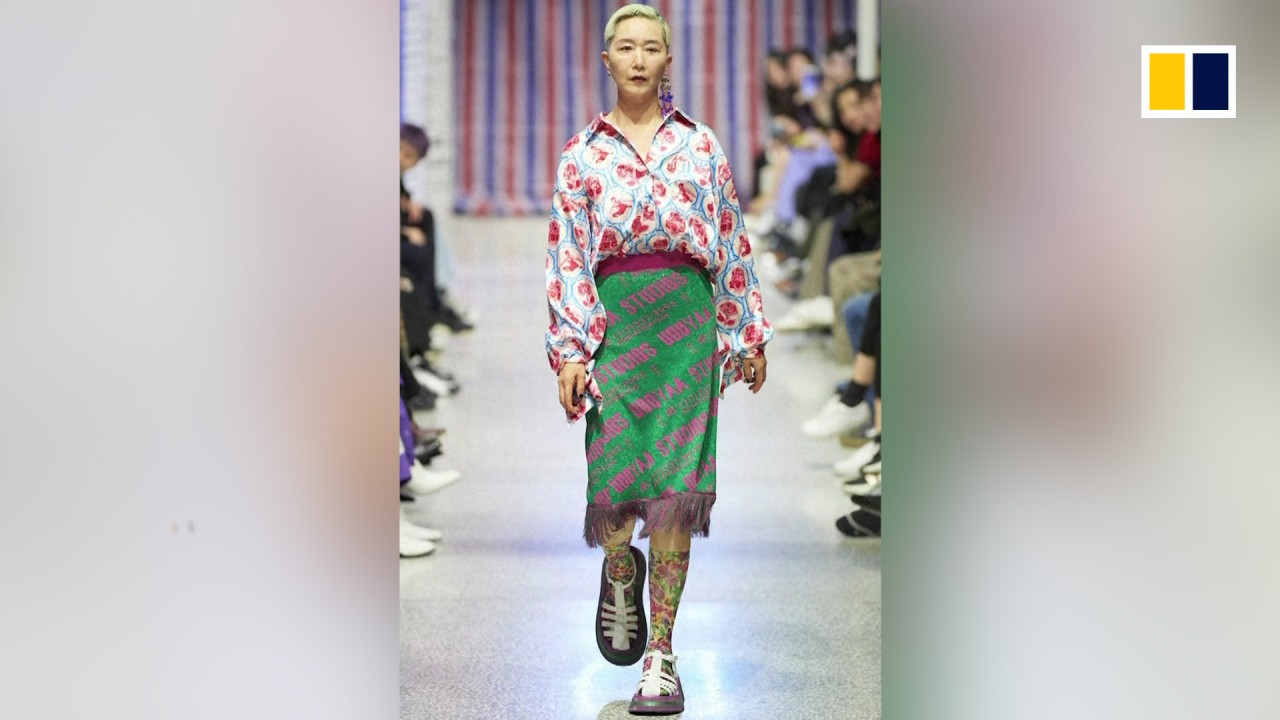
How a TV talent show for older women has thrown a spotlight on feminist discourse in China
- The show, which includes glamorous women in their 50s, fails to live up to its ‘girl power’ trappings, but it has sparked a heated online debate about feminism and ageism in China
The reality show Sisters Who Make Waves is making massive waves in China. Its unusual premise partly explains its huge popularity. Unlike the usual pop idol contests, which feature fresh-faced, doe-eyed people in their teens and early 20s, this one invites 30 female celebrities, singers, TV hosts and actresses aged over 30, to compete for five spots in an all-female band.
“Even though some possibilities in life fade after you hit 30, you can still transcend time and reinvent yourself,” reads part of the show’s manifesto. Viewers gush with comments such as: “After watching the show, I am less afraid of getting old.” “I am delighted that China is beginning to embrace the beauty of the so-called old girls.”
Intrigued, I sat down to watch episode one over dinner one evening.
It is quite a show, I have to admit, eye-catching and lavishly made. Genre-bending, it presents not only the singing competitions but also the whole process of the performers getting ready, socialising, joking and laughing with each other, interspersed with interviews throughout.
The word “meinü” – beauty – pops up every other minute. It seems to me that the show’s producers are simply using these attractive women to lure an audience, just like other shows. Such a TV product is unlikely to shatter the stereotypes of middle-aged women it supposedly fights against.

01:34
Middle-aged model defies stereotypes in China
Adhering to traditional societal views, it does not even attempt to avoid the male gaze. During one interview, when 48-year-old actress Ning Jing was asked what kind of band she would like to form, she replied without hesitation: “One that makes women want to be like them, and men want to marry them.”
Some contestants did touch upon the age issue. Wu Xin, a 37-year-old TV host, believes she is at the best stage of her life: “I used to limit myself due to a narrow vision. As I get older, I’ve come to realise that actually I can do many things, so I decided to seize this chance to stretch myself.”
I am fully aware that this is a commercial show not designed to live up to the feminist branding, but I cannot help feeling a little disappointed. This could have been a great opportunity to discuss some real issues, such as ageism and discrimination against women in the entertainment industry and beyond.
Ageism and sexism are notorious in show business worldwide. China is probably worse than average since it has no law against ageism. At a film festival last year, Chinese actress Hai Qing railed against rampant ageism in the Chinese film industry and made a passionate plea for more meaningful roles for older women.
The oldest contestant in the show is 52-year-old Taiwanese singer Annie Yi Neng-jing, my personal favourite since she is an excellent singer and radiates confidence. At one point, an on-camera director demanded that she cover up her knees but she refused. “Can we just do it my way for once,” she said coolly.

The show has at least sparked heated online debate about feminism and ageism. Some asked what kind of women can make waves in China: only those beautiful and successful? Echoing this, others feel the bar is too high. “The more dazzling these sisters are, the more anxious I feel,” complained one young woman.
In an online article about the show, Professor Ke Qianting, of Sun Yat-sen University, a feminist, said the show sexualises and objectifies its contestants. Others are less critical.
Renowned feminist Zhang Leilei told me that although the show does not qualify as feminist, it does promote the diversity of women and places a spotlight on the talents and capacities of women over 30.
I tend to agree with her: it is a good thing that the show is being screened. Due to restrictions by the authorities, feminist discourse lags behind the rest of the world. This show does not make big waves in this regard, but even a few ripples are better than nothing.
Lijia Zhang is a rocket-factory worker turned social commentator, and the author of a novel, Lotus

